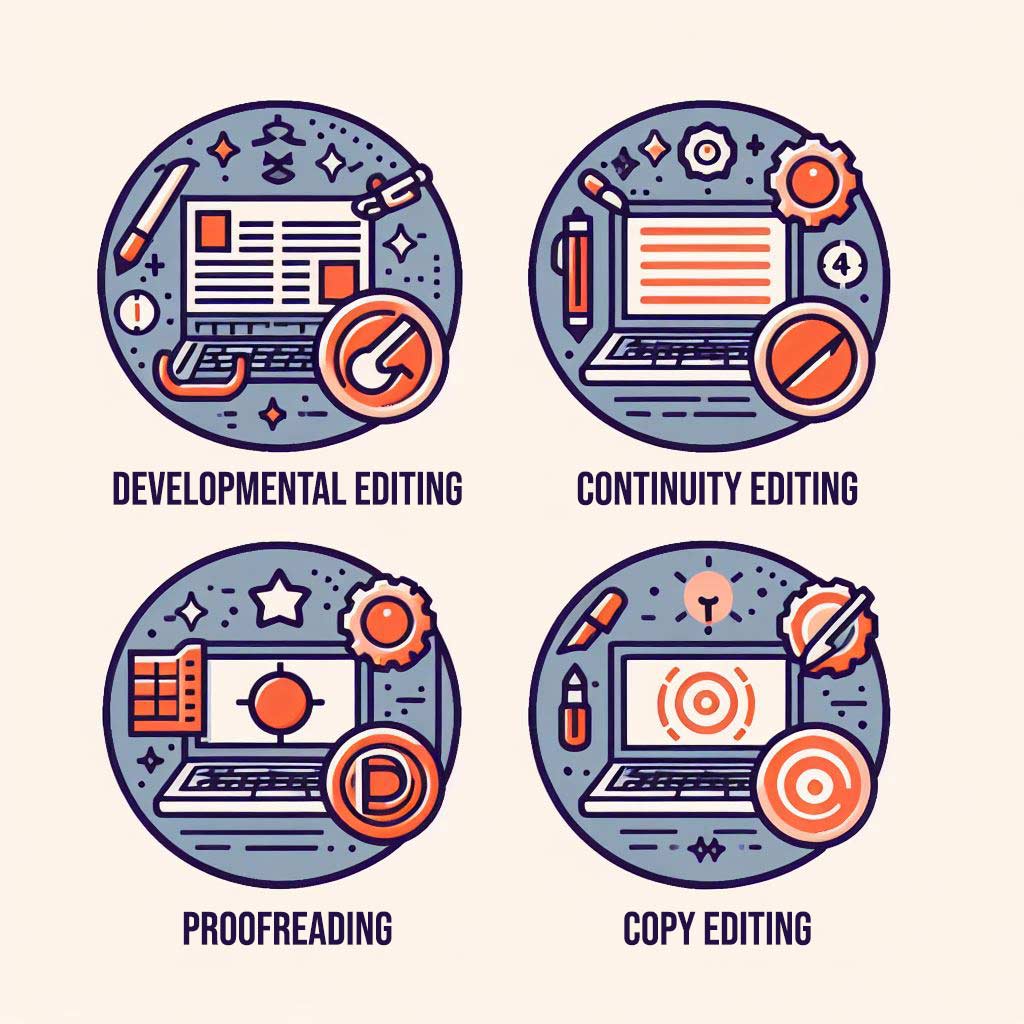Script editing is a crucial, yet often misunderstood, role in the creative media production process. In essence, script editors are quality control experts who refine and enhance screenplays, teleplays, radio plays, and other scripts to get them ready for production.
Script editing requires a diverse range of creative, analytical, and collaborative skills. Script editors assess dramatic structure, character development, pacing, factual consistency, and other elements to provide constructive feedback to writers.
They use storytelling best practices to suggest improvements without compromising the writer’s creative vision.
This comprehensive guide will clarify exactly what script editors do, the skills the role requires, the different types of script editing, how it differs from screenwriting, and how to get started in the field. Let’s dive in!
What Does a Script Editor Do?
Script editors collaborate closely with screenwriters, producers, directors, and other stakeholders during the script development process. They wear many hats, but some of their most important responsibilities include:
Providing Creative Story Suggestions
While preserving the writer’s unique voice, script editors may suggest plot points, character details, themes, or dialogue that help elevate the overall story. This requires strong storytelling instincts and the ability to analyze scripts critically.
Assessing Structure, Character, Pacing and More
Experienced script editors evaluate the “big picture” elements of scripts from beginning to end. This means assessing the overall plot structure, whether key story events happen at appropriate times, if main characters have clearly defined arcs, and if themes develop cohesively. Script editors pinpoint issues and offer concrete improvement recommendations.
Ensuring Correct Formatting
Script editors thoroughly check that all script components– slug lines, transitions, descriptions, character names, and dialogues – adhere proper screenplay formatting standards for the intended medium. They may highlight issues in editing software and provide instructions for corrections.
Checking Accuracy and Consistency
All the minute details in scripts must be correct and logically aligned from start to finish. Script editors vigilantly verify facts, terminology, resource references, trademark usages, etc. They also check timelines, character details, scene settings, and story events match across the entire script.
Providing Constructive Feedback
Editorial feedback needs to be clear, actionable, and considerate of the writer’s perspective. Skilled script editors communicate issues tactfully, explain the “why” behind suggestions, provide concrete examples from the script itself, and outline steps for improvements. Writers depend heavily on this feedback to refine their next drafts.
Example Script Editor Workflow
To illustrate how the different script editor responsibilities fit together, here is an example workflow:
The script editor thoroughly reads the first draft script to become intimately familiar with all the story details. They take organized notes on suggested edits and possible improvements.
Next, the editor has an initial consultation call with the writer(s) and producer to discuss high-level narrative issues that require attention – like an unclear protagonist motivation, inconsistent tone, slow third act, etc.
The editor then performs a heavy line-by-line edit focused on accuracy, factual inconsistencies, formatting issues, and grammar errors. They provide comments explaining the issues and how to change them.
After the writer integrates revisions from the line edits, the script editor performs another read-through to ensure previously identified issues have been addressed. Additional edits may be required.
Finally, the script editor has a closing call with the writer to recap all changes, answer any outstanding questions, and discuss next steps before production begins.
Many rounds of feedback may be required before a script is deemed ready for the director. Script editors facilitate the entire refining process in close partnership with writers from conception to final draft.
Skills Needed for Script Editing
Script editing requires an advanced creative skillset and specialist industry knowledge. Some of the top abilities any aspiring script editor needs include:
Strong Communication Skills
From giving thoughtful written feedback to having difficult conversations about story weaknesses, script editing necessitates exceptional communication abilities – especially in writing. You need to explain complex issues clearly while being sensitive to creative perspectives.
Knowledge of Screenplay Format
Script editors must demonstrate complete mastery of screenplay structure and style for the intended medium, whether film, episodic television, theater, or radio. This includes formatting standards like scene headings, transitions, and stage directions plus strong spelling and grammar.

Storytelling and Plot Development Skills
Since assessing narrative cohesion and dramatic pacing are core script editor duties, expertise in traditional storytelling conventions is essential. You should understand plot mechanics, three-act structure, archetypal characters, dialogue techniques, and more.
Attention to Detail
Meticulous attention to detail is perhaps a script editor’s most crucial trait. You will be poring over nuanced narrative elements, timelines, production requirements, and character details – any inconsistencies can undermine the entire script.
Ability to Work Cooperatively
Script editing depends on maintaining positive, trusting relationships with writers. You must communicate feedback effectively, demonstrate storytelling knowledge authoritatively yet diplomatically, and facilitate creative collaboration without ego interfering.
Types of Script Editing
Not all script editing is created equal. While there is overlap between the types, script editors generally specialize in one of four main editing categories:
Developmental Editing
Developmental editing focuses on the high-level narrative and dramatic architecture of scripts. Developmental script editors assess overall story cohesion, plot structure, character motivation, and change, theme development, and key moments of conflict and resolution. Their suggested edits aim to strengthen the dramatic potency of scripts.
Proofreading
Proofreading involves fixing typos, spelling errors, punctuation mistakes, grammatical problems, and improper word usage. Proofreading ensures the script adheres to professional writing quality standards, industry format consistency, and generally polished presentation.

Copy Editing
Copy editors verify all factual details for accuracy – including terminology, cultural references, historical events, scientific language, foreign words, product names, business Details, technical concepts, and more. They may tag suspect phrasing and check reference resources.
Continuity Editing
To ensure logical alignment across all script elements from start to finish, continuity editors closely track details like timelines, event sequences, character backgrounds, scene locations, costume changes, and prop placement. They coordinate fixes for any contradictions, gaps, or ambiguities.
As you can see, developmental editing focuses on big-picture narrative issues; proofreading and copy editing refine words, phrases, and factual accuracy; and continuity editing connects all details. Expert script editors specialize in one editing domain before expanding their skills.
The Difference Between Scriptwriting and Script Editing
It’s important to understand the differences between the initial creative writing process and subsequent editing collaboration. Here is where the two roles diverge:
- Script Writer: The creative visionary authoring the fictional story itself from scratch. They develop the original ideas, premises, characters, plots, dialogue, and worlds portrayed in scripts.
- Script Editor: The analytical advisor focused on maximizing finished script quality through constructive critiques of writers’ content. Assesses objective strengths/weaknesses to provide suggestions for betterment.
- Process Order: Writers pen initial draft scripts. Editors then review to provide improvement feedback, which writers choose to implement or not during rewrites.
- Creative Control: Writers retain authority over their creative vision and what feedback resonates. Editors influence direction but understand writers have the final say over their properties.
In essence, script writing involves subjective, imaginative storytelling while script editing brings more calculated, pragmatic analysis. When writers get attached to their ideas, a respectful editor must determine what change suggestions may lead to script improvements without overreaching into defined creative boundaries or discouraging writers’ instincts.
Getting Started as a Script Editor
For those attracted to the script editor profession, how do you get your foot in the door? What steps help launch your career?
No formal educational requirements exist but relevant experience greatly speeds entry. Possible paths include:
- Entertainment Industry Internships: Many aspiring editors start under veteran mentors reviewing scripts, observing feedback delivery, and honing their evaluation skills.
- Assistant Positions: Hands-on learning by assisting established editors with script assessments, research, consultations, and organization can prepare for future breakout.
- Independent Editing Practice: If working with a mentor isn’t viable, seek novice writers looking for editors and build real experience by giving quality notes.
- Editorial Freelancing: Once you develop competency, freelance editorial services let you take on projects refining scripts, plays, novels, and more while expanding portfolios.
- Continuing Education: Formal training isn’t mandatory but may augment expertise. UCLA Extension’s script development or Professional Program in Screenwriting courses are examples.
With perseverance and dedication to enhancing storytelling through constructive criticism of writers’ creative visions, an aspiring script editor can gain the background to thrive in this unique entertainment specialty.
Conclusion
From assessing structural issues to fixing typos, script editors are quality assurance professionals in the entertainment industry. They apply creative logic and storytelling principles to improve scripts for production – a role balancing high-level problem-solving with granular attention to detail.

By better understanding exactly how script editors strengthen narratives, checking formatting and accuracy, facilitating writer relationships, and distinguishing developmental vs. copy edits, those aspiring to this career can better train for its multifaceted demands.
With the right blend of communication abilities, script formatting literacy, classic storytelling know-how, and constructive perspective, script editors can play a profoundly influential role in shaping the films, shows, and other entertainments we all enjoy.
Frequently Asked Questions
What is the meaning of script editing?
Script editing refers to the process of providing constructive feedback and revisions to screenplays, teleplays, or radio scripts to improve their structure, characters, dialogue, factual accuracy, formatting, and overall quality before production.
What is a script editor used for?
A script editor is primarily used during the development process to improve scripts through constructive feedback on what’s working well or needs improvement in terms of story, characters, structure, flow, commercial appeal, etc. Their edits ready the script for production.
What is the job of a script editor?
The script editor’s main jobs are to critically evaluate the strengths and weaknesses of scripts, provide written and verbal feedback to writers for improvement, verify the accuracy/consistency of details, ensure proper structural elements and formatting, and collaborate with writers over multiple drafts to get scripts production-ready.
What skills do you need to be a script editor?
Key script editing skills include strong communication ability, commercial sensibilities, story/structure analysis talents, attention to detail, diplomacy, creative problem-solving, intimate genre knowledge, and a polished grasp of grammar/spelling/punctuation/formatting standards and continuity tracking.
What are the three types of scriptwriting?
The three main types of script writing are screenplays/teleplays (for film/TV/streaming), radio plays (for radio format), and stage plays (for live theatrical production). Script editors may specialize in one medium.
What are the two types of scripts?
The two overarching types of scripts are fiction, which covers imagined stories, worlds, and characters – and non-fiction, which covers factual real events and people. Script editors focus mainly on fictional storytelling script development.
How scripts are written?
Scripts are written first through an initial outline defining major story beats, plot points, primary roles, etc. Writers then create multiple dialogue-driven drafts fleshing out details. Script editors provide feedback for revisions and rewrites throughout to finalize scripts for production.
What are the main parts of a script editor?
The main components a script editor evaluates are premise, story/plot structure, scene flow, characterization, dialogue authenticity, stage/action details, factual consistency, proper formatting, commercial appeal, originality, and suspended disbelief. They critique all aspects.

